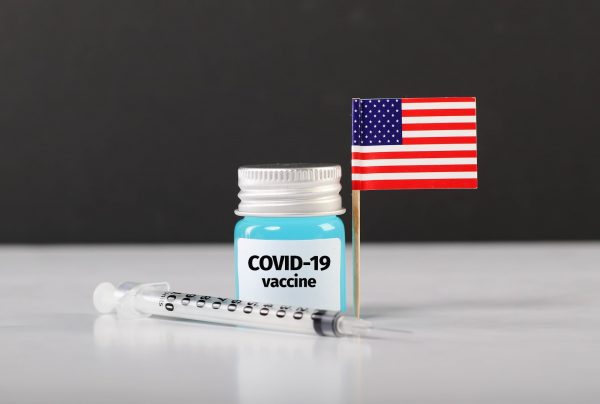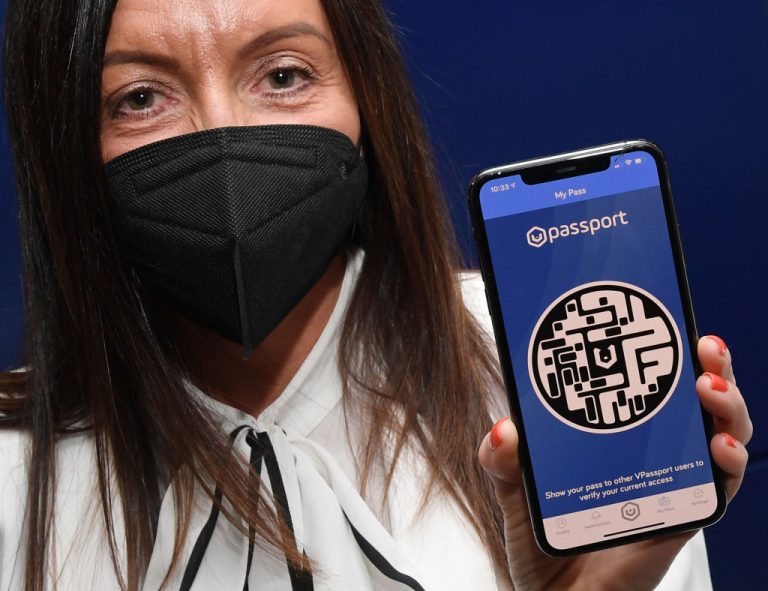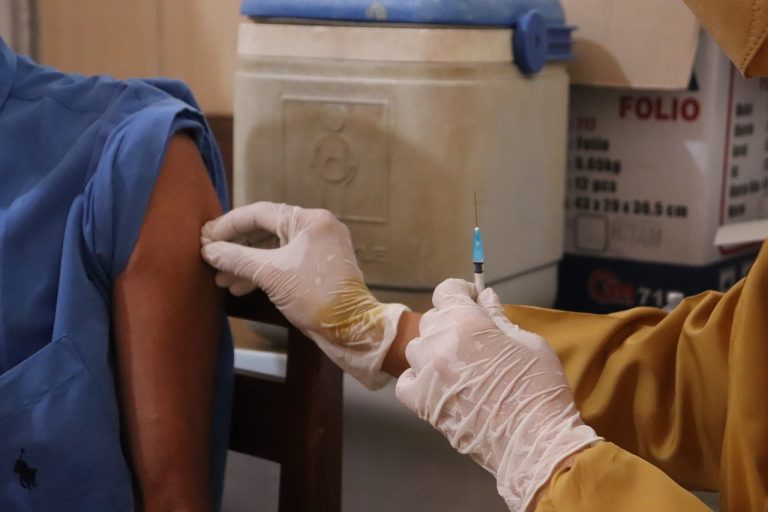Shortly after the White House lauded and applauded the corporate initiative for digital vaccine credentials, the Biden administration now appears to be backpeddling on its position.
“The government is not now, nor will we be supporting, a system that requires Americans to carry a credential,” said Press Secretary Jen Psaki at a White House press briefing on April 6.
Psaki’s statement appears dissonant, however, after earlier in the month, Washington vowed to take an active role in helping corporations develop vaccine passports, providing recommendations and guidelines for how to make the systems universal and affordable in a presentation by the Office of the National Coordinator for Health Information Technologies. In the presentation, vaccine credentials were described as something that could easily become necessary for daily life.
The Vaccination Credential Initiative began in January, with the support of tech giants like Microsoft, Oracle, and Salesforce. Executive Vice President Bill Patterson described Salesforce’s role as “to help organizations easily and safely customize all aspects of the vaccination management lifecycle and integrate closely with other coalition members’ offerings,” while Oracle’s Executive Vice President Mike Sicilia said credential schemes should be “as easy as online banking.”
The Washington Post reported in March that Micky Tripathi, National Coordinator for Health Information Technology, stated that his department was designated by the Department of Health and Human Services for “coordination and alignment of vaccine credential activities across HHS agencies.” He said, “As more of the population becomes vaccinated, proof of immunization will likely become a major, if not the primary, form of health status validation.”
Success
You are now signed up for our newsletter
Success
Check your email to complete sign up
Tripathi indicated that vaccine credentials would be necessary for everything from international travel to commonplace activities, as vaccine verification would be required for “access to private and public facilities within the U.S.” He also noted that the private sector is making vaccine passports a business policy standard, and said that “current trends suggest that vaccine credentials could nevertheless become a market-imposed de facto requirement for an individual’s return to day-to-day activities.“
As digital health status verification systems are being established around the world, many are alarmed at the high level of surveillance they foster, and some are uncomfortable with the ensuing pressure to get vaccinated against one’s own judgement; but left-wing concerns focus mainly on the social inequities that will result.

Psaki addressed some of these issues when she stated, “As these tools are being considered by the private and nonprofit sectors, our interest is very simple from the federal government, which is Americans’ privacy and rights should be protected and so that these systems are not used against people unfairly.” She added that the federal government would provide a “frequently asked question” guidance for for private companies regarding issues of privacy, security, and discrimination to be addressed when setting up vaccine credential systems.
On the right side of the political spectrum, mandatory vaccine credentials are seen as a more serious threat. While supporting the federal mass vaccination drive, Republican Governors Ron DeSantis of Florida, and Greg Abbott of Texas have both issued executive orders prohibiting mandatory vaccine credentials in their states.
The issue that many seem willing to ignore, however, is that the vaccines themselves are only approved for distribution under an FDA Emergency Use Authorization, and are still years away from completing Stage III testing. The mRNA technology used in the Moderna and Pfizer vaccines is also new and experimental, and has not been subject to the test of time.
Regulations requiring citizens to take such substances into their bodies raise fundamental concerns. The Great Barrington Declaration, a document “written from a global public health and humanitarian perspective, with special concerns about how the current COVID-19 strategies are forcing our children, the working class and the poor to carry the heaviest burden,” makes an important point.







